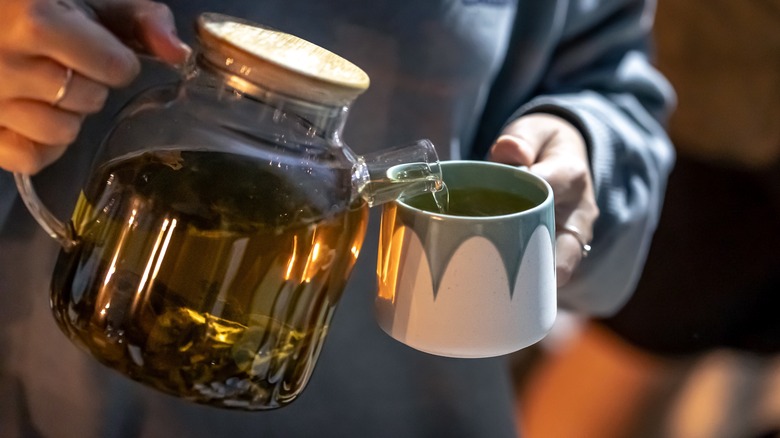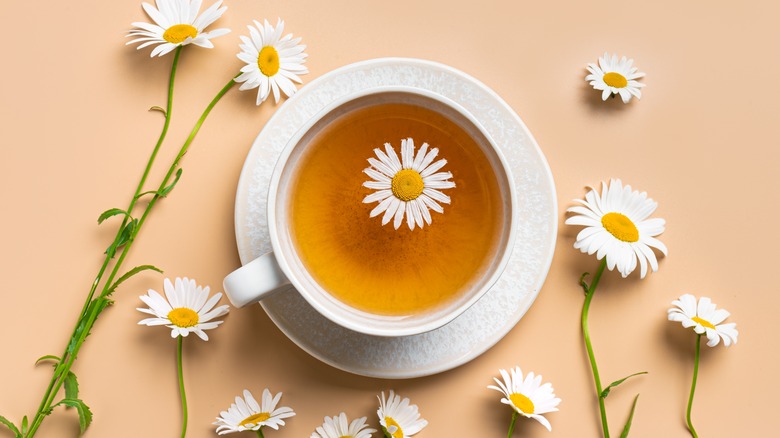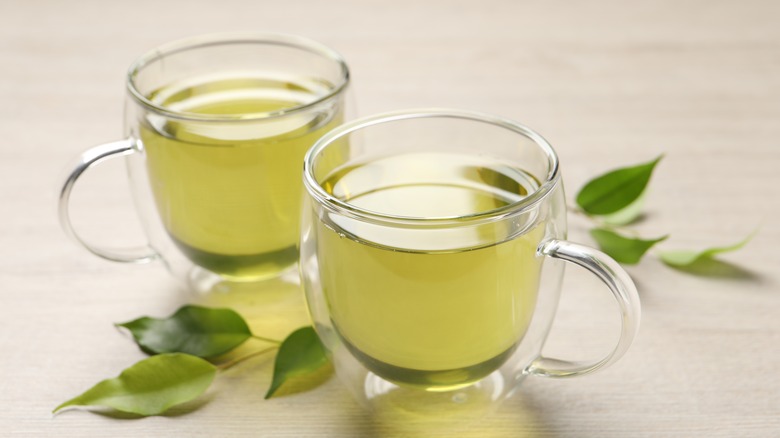Why Some Teas Make You Sleepy (And Others Wake You Up)
I know coffee culture reigns supreme, but I'm a tea gal through and through. My favorite is a strong and flavorful iced tea (specifically, it's the exceptional Sweet Tea from McDonald's). But still, I love a good cup of hot black tea with a little lemon and some honey. I'm not a purist in the sense that I don't usually drink tea straight without anything added in, but I enjoy it all the same.
Tea is a widely consumed beverage with effects that range from calming to invigorating. The type of tea you drink and its ingredients determines whether it makes you sleepy or gives you a boost of energy. Herbal teas like chamomile, valerian root, and Sleepytime tea are pretty well-known for their calming properties. These teas are naturally caffeine-free and contain compounds that help relax the body and mind, so they're excellent for unwinding before bed, especially if your body is aching and it's chilly outside.
On the other hand, black, green, and matcha tea have a stimulating effect – something to be mindful of if you're thinking of sipping some close to when you need to get some shut-eye. These teas contain varying amounts of caffeine, which we know keeps us going and alert. Most people drink them in the morning or afternoon to improve focus and energy. It's good to understand the main ingredients and effects of different teas so it can help you make better choices based on your needs and what you're looking for.
How do calming teas help you sleep?
The secret to calming teas is in their natural compounds which affect stress and anxiety. For, example, chamomile contains apigenin, an antioxidant that binds to certain brain receptors; promoting drowsiness and reducing insomnia. Similarly, valerian root has been used for centuries as a natural sedative, helping the body to calm down.
Many of these teas are naturally caffeine-free, which means they won't interfere with your sleep cycle. The lack of caffeine combined with soothing properties makes them wonderful for nighttime consumption. Sleepytime tea is a blend of chamomile, spearmint, and lemongrass and it's specifically formulated to help the body mellow out and transition to sleep.
Drinking these teas as part of a nighttime ritual can also signal to your brain that it's time to rest. The warmth of the tea, along with its calming ingredients, helps lower stress levels, and that creates the perfect environment for sleep. To maximize the benefits, steep the tea for the recommended time to fully extract all the relaxing compounds.
Why do caffeinated teas wake you up?
Black, green, and oolong teas are known for having energizing effects because caffeine is a natural stimulant that blocks adenosine, the brain chemical responsible for making you feel tired. In addition to caffeine, these teas contain theanine, which is an amino acid that helps you relax while maintaining mental clarity. The mix of caffeine and theanine creates a balanced effect — you get energy without the jitteriness that can come with coffee or a Red Bull. Green tea, in particular, is often praised for this balance, since it gives you a gentler energy boost than black tea or coffee.
The amount of caffeine varies by tea type. Black tea has the highest caffeine levels, while green and white teas have less. Matcha, a powdered green tea, is an exception as it delivers a concentrated dose of caffeine and nutrients due to its unique preparation. Word to the wise, since these teas can help you feel more awake, don't drink them too late in the day to avoid disrupting your sleep.


